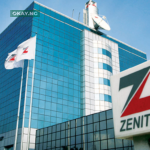The Central Bank of Nigeria (CBN) has introduced the Foreign Exchange (FX) Code Book to promote integrity, fairness, and transparency in the Nigerian Foreign Exchange Market (NFEM).
This initiative is designed to address the changing financial landscape, mitigate risks, and enhance market practices.
The FX Code will come into effect in October 2024 and is a comprehensive guide for market participants to comply with best practices, improve transparency, and ensure ethical conduct in Nigeria’s wholesale foreign exchange market.
Purpose of the CBN FX Code
The FX Code aims to create a robust and liquid market environment, encouraging a fair and transparent marketplace for all participants. Its six key principles include:
- Ethics: Participants should adhere to ethical standards and act with honesty, integrity, and professionalism to maintain the FX Market’s fairness.
- Governance: A sound governance framework must be implemented to ensure oversight and accountability for FX transactions.
- Execution: Proper care should be taken when executing and negotiating FX transactions.
- Information Sharing: Clear and accurate communication while protecting confidential information is essential.
- Risk Management and Compliance: Participants should maintain robust controls to mitigate risks associated with FX transactions.
- Confirmation and Settlement: Efficient post-trade processes should be implemented to ensure timely and secure settlement of transactions.
Compliance and Enforcement
Market participants are required to conduct self-assessments and submit a compliance report to CBN by December 31, 2024. Enforcement actions, including monetary penalties, will be taken against those who fail to comply.
Key Principles of the FX Code
1. Ethics
Market participants are expected to act ethically and professionally to uphold the integrity of the FX Market. The FX Code mandates that:
- Participants should act honestly, avoid questionable practices, and promote ethical behavior across their firms.
- Conflicts of interest must be identified and managed appropriately.
2. Governance
Participants must establish a sound governance structure that promotes accountability and responsibility. This ensures that there is effective oversight of FX transactions, including:
- Defining clear responsibilities for FX business strategy and risk management.
- Ensuring that appropriate internal controls are in place for executing and overseeing FX activities.
3. Execution
Execution of FX transactions should be handled with care to promote an open, liquid, and transparent market. Participants are required to:
- Handle orders fairly and transparently.
- Provide clients with clear disclosures regarding how their transactions are handled and executed.
4. Information Sharing
Participants should ensure the confidentiality of sensitive information and communicate clearly with market participants. Key principles include:
- Limiting access to confidential information to only those who need it.
- Ensuring communication is clear, professional, and does not mislead market participants.
5. Risk Management and Compliance
Market participants must maintain a strong control environment to manage and report risks associated with FX transactions. This involves:
- Implementing risk management frameworks.
- Ensuring compliance with both local and international regulations.
6. Confirmation and Settlement
Robust post-trade processes should be in place to promote timely and efficient settlement of FX transactions. Participants should:
- Confirm trades as soon as possible after execution.
- Resolve discrepancies in a timely manner to ensure smooth market operations.
Reporting and Monitoring
Participants will need to submit quarterly compliance reports to the Financial Markets Department (FMD), with the first report due by December 31, 2024. These reports should detail how institutions are adhering to the FX Code and any compliance challenges faced.
Impact on Nigeria’s FX Market
The implementation of the FX Code will strengthen Nigeria’s FX market by:
- Ensuring that transactions are conducted fairly and ethically.
- Enhancing market liquidity and transparency.
- Reducing market risks through better governance and risk management.
Table: Key Compliance Dates for CBN FX Code
| Event | Deadline |
|---|---|
| FX Code Effective Date | October 14, 2024 |
| Self-Assessment Submission | December 31, 2024 |
| Quarterly Compliance Report Due | December 31, 2024 (First) |
By adhering to the FX Code, market participants can foster a more stable, transparent, and fair Nigerian Foreign Exchange Market.
The CBN FX Code Book is a significant step towards improving the integrity and efficiency of Nigeria’s Foreign Exchange Market. As it becomes fully effective in October 2024, market participants must take proactive measures to comply with the guidelines and promote best practices in the industry. This will not only ensure fair dealings but also contribute to the long-term stability and growth of Nigeria’s FX market.









